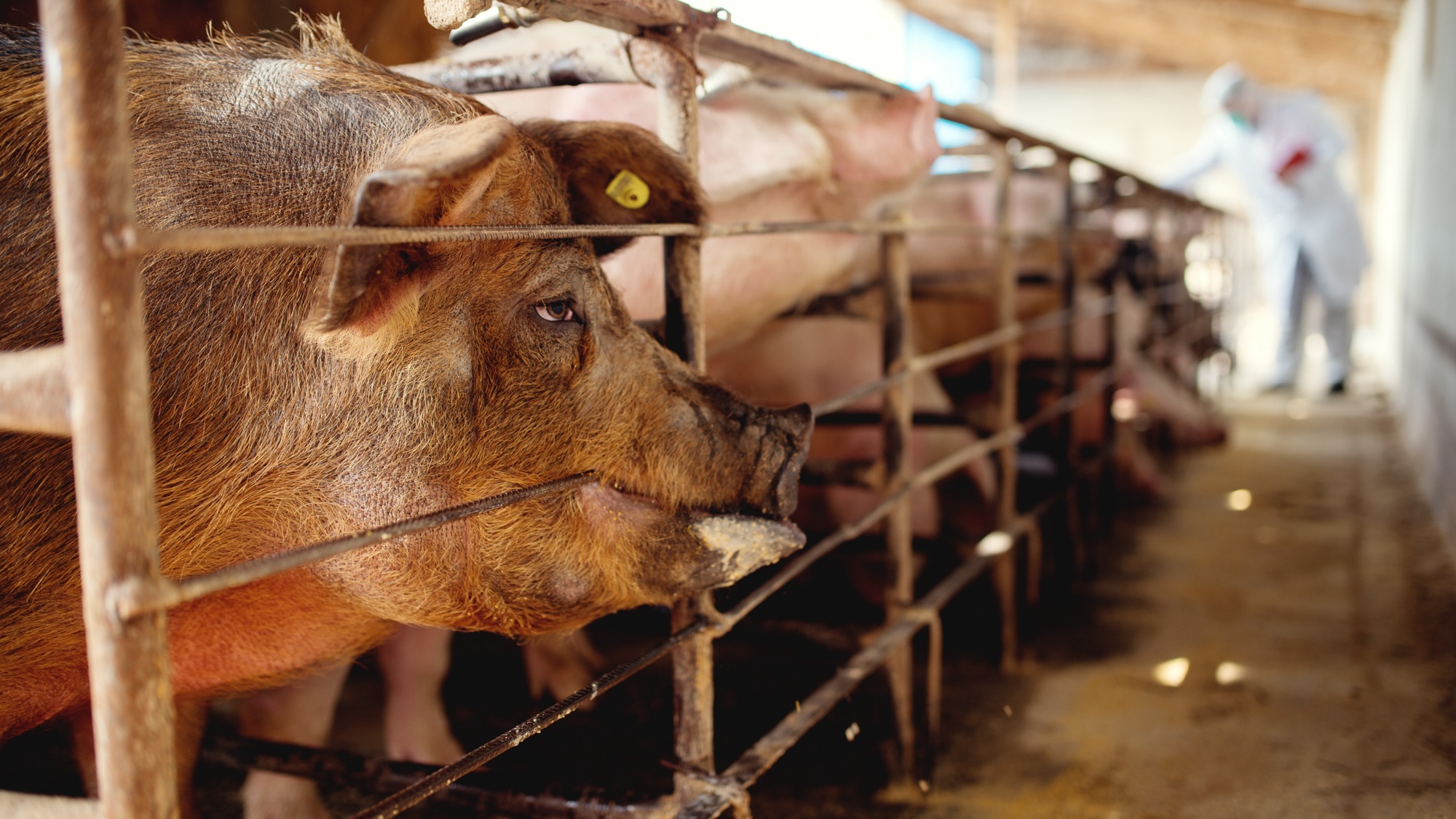

US farmers are closer than ever to raising genetically edited pigs immune to one of the animal’s deadliest diseases. But while millions of dollars could be saved with livestock impervious to highly virulent, diverse strains of porcine reproductive and respiratory syndrome (PRRS), animal rights groups maintain the cutting-edge idea isn’t an ethical solution, but yet another industrial farming stopgap.
PRRS is a dynamic, often fatal virus that affects millions of pigs around the world and costs farmers as much as $2.7 billion each year. Current vaccines only reduce symptom severity, and the antibiotics used to treat an infected pig’s weakened immune system can exacerbate the development of other resistant bacterial diseases.
[Related: Scientists swear their lab-grown ‘beef rice’ tastes ‘pleasant’]
Genus, an international breeding company, believes the best way to solve this major issue is to engineer pigs that are incapable of contracting the virus. As highlighted in a recent New Scientist profile, Genus researchers succeeded through CRISPR gene editing technology. By removing a portion of protein called CD163, the disease cannot infect a pig’s cells and allows the animal to remain “healthy and indistinguishable in appearance and behavior,” according to a Genus research study recently published in The CRISPR Journal.
Doing so isn’t an easy task. Just one-fifth of Genus-bred piglets possessed the desired gene—and even then, only within certain body cells due to a biological condition known as mosaicism. Meanwhile, some lab livestock may have lacked CD163, but at the cost of other unwanted genome changes.
Because of such issues, experts have spent years attempting to create a healthy, gene-edited animal. Genus says it has so far bred hundreds of PRRS-immune pigs, and expects to receive approval from the US Food and Drug Administration to begin public sales as soon as next year. Meanwhile, regulatory approvals are also being pursued globally in countries including China and Mexico—both of which import large amounts of US pork.
But according to factory farming critics and animal rights advocates, the real issue isn’t livestock disease susceptibility—it’s the livestock’s living conditions. According to the international welfare nonprofit World Animal Protection, farm stock receives three-quarters of global antibiotic supplies each year in an attempt to stave off disease, treat infections, and promote faster growth rates. Doing so is directly linked to the rise in treatment-resistant superbugs, which are more likely to leap between animals to humans within a factory farm’s cramped, poorly ventilated environments.
“Crowding animals into stressful, unhealthy conditions has led to the emergence of new virulent pathogens and diseases,” Gene Baur, President and Co-Founder of the animal rights group Farm Sanctuary, said in an email to PopSci. “Rather than developing genetically engineered animals who can survive the horrific cruelties of factory farming, agribusiness should focus instead on addressing the conditions that create these diseases in the first place.”
